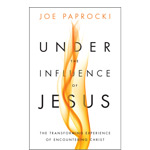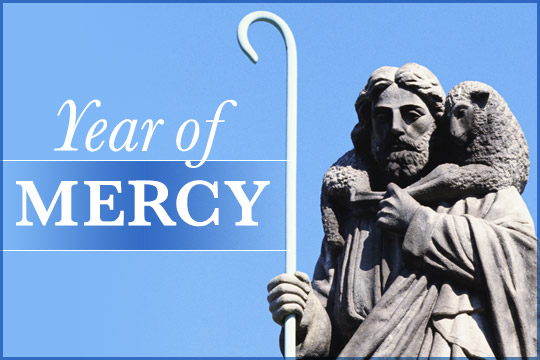
It is a fairly common practice in advertising to garner attention by making a claim about a product or service that is counterintuitive or defies commonly accepted reasoning. For example:
- a diet plan promises that you can lose weight in 30 days while eating all the bacon you want;
- a light beer promises robust flavor with only 64 calories;
- a body lotion promises to physically reshape your body;
- a bracelet promises to relieve arthritic pain.
While these claims sound too good to be true, they also pique our curiosity. We want to see for ourselves, kind of like when the Apostle Thomas heard the other Apostles claim that Jesus was risen from the dead. Thomas replied that he needed to see this for himself and, boy, was he treated to a personal demonstration! (John 20:24–29)
At the heart of our proclamation of the Good News of Jesus is a claim that defies all reasonable thinking: The key to eternal life is dying! We basically ask of those we teach, “Can I interest you in eternal life?” and when people say, “Yes!” we show them a crucified man. In other words, we proclaim the Paschal Mystery, which teaches that death is not the end but is the key to transformation that brings about new life. Our task, as evangelizing catechists, is to teach people of all ages how to lay down their lives. Jesus said, “Greater love has no one than this: to lay down one’s life for one’s friends” (John 15:13 NIV). Jesus, of course, laid down his life for us. Over the centuries of Church history, many martyrs have laid down their lives for their faith. And, of course, many military personnel as well as first responders have laid down their lives for others. Teachers have laid down their lives to save their students from mass shootings.
What about the rest of us? Is the “greatest love” out of reach for the average person, because we have not and probably will not physically die or be killed because of our faith? I think we have too narrowly defined what it means to “lay down your life” for others. While some, like Jesus, actually die for others, the rest of us are called to lay down our lives for others each and every day. To die for others is the ultimate example, but to lay down your life means to set your own needs aside in order to tend to the needs of others.
We are called to do this everyday. Parents and spouses set aside their own needs in order to tend to the needs of their children and one another. Teachers and catechists set aside their own needs to tend to the needs of their students. Doctors and nurses set aside their own needs to tend to the needs of their patients. Workers set aside their own needs to tend to the needs of their customers or co-workers. And so on. It is our job as catechists to teach people how to lay down their lives. We do this by providing them with opportunities to practice selfless love. Whether we call them service projects, mercy experiences, or something else, we must be about the work of apprenticing those we teach in acts of selfless love.
Several years ago, I served as a sixth-grade catechist in a parish where the catechetical leader asked every grade level to involve kids in a service experience. I arranged for the young people to prepare and serve dinner at a local Ronald McDonald House. They thoroughly enjoyed the experience. At the end of the year, when I asked them what they liked best about religious education that year, every one of them said the service experience was their favorite moment (and I taught some pretty awesome classes that year!). It is no surprise that this was their favorite moment, because their hearts were touched, and they were able to put into action what they were being taught. They had an experience of laying down their lives and, in doing so, discovered new life. As evangelizing catechists, we need to do more than indoctrinate; we need to instigate!
If we’re waiting until eighth grade or high school Confirmation classes to involve young people in service/mercy experiences, we’re waiting too long! From the very beginning of faith formation—including adults in RCIA—participants should be invited to participate in experiences of selfless love in which they lay down their lives for the lives of others. This is the way of life that we are apprenticing them into. Dying and rising is the heart of our faith. There is no getting around the Cross; it is the key to fullness of life.
Read the other articles in the How to Be a More Evangelizing Catechist series.
 Download a flyer of the nine strategies. Go deeper with these ideas by reading my book, Under the Influence of Jesus: The Transforming Experience of Encountering Christ.
Download a flyer of the nine strategies. Go deeper with these ideas by reading my book, Under the Influence of Jesus: The Transforming Experience of Encountering Christ.





Be the first to comment